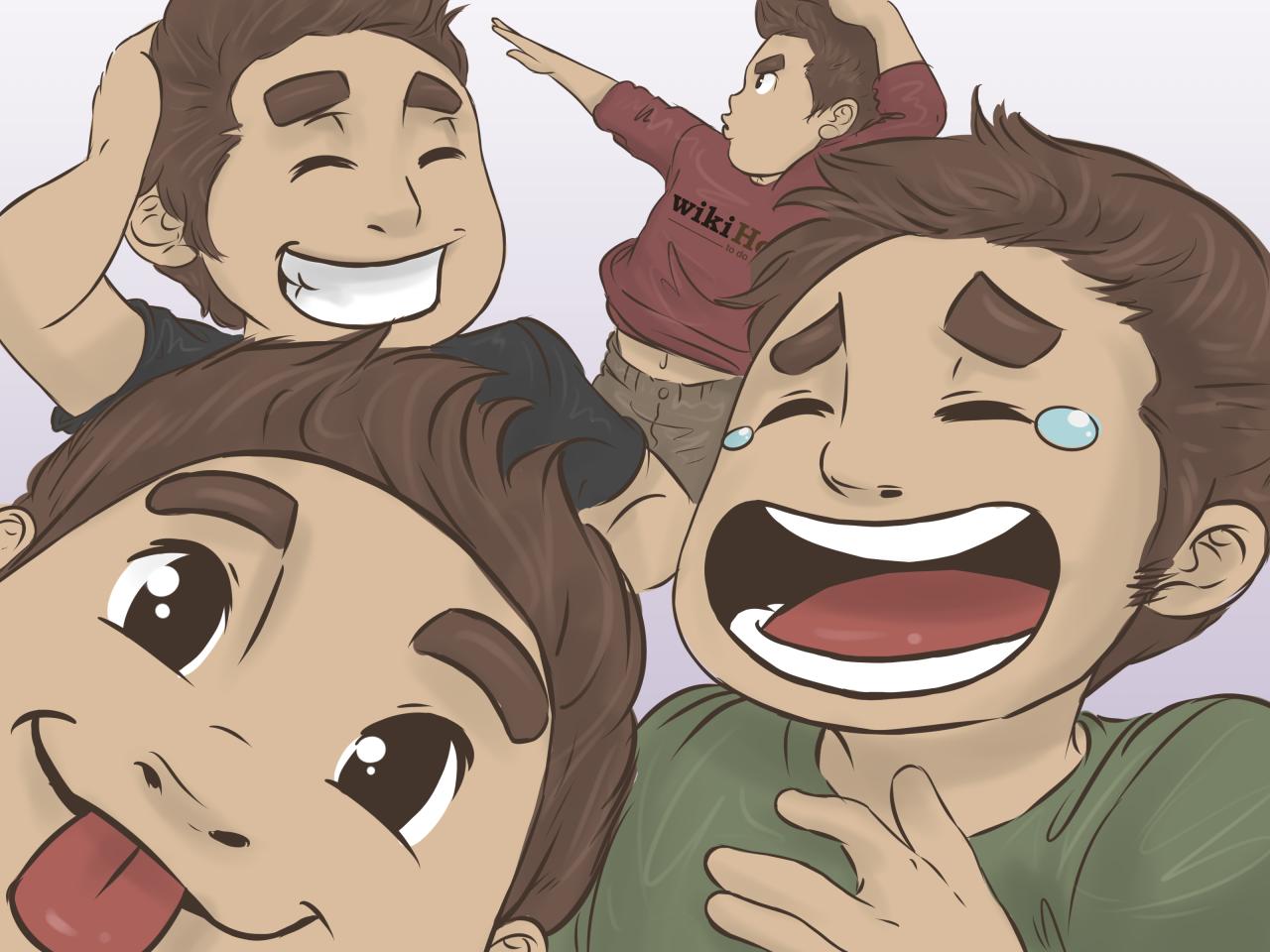Humor in Literature
Humor is a powerful literary device that can be used to entertain, provoke thought, and even teach lessons. When used effectively, humor can make a work of literature more engaging, memorable, and impactful.
Types of Humor in Literature
There are many different types of humor that can be found in literature, including:
- Satire: Humor that uses exaggeration, irony, or ridicule to criticize or expose human folly.
- Parody: Humor that imitates the style or form of another work of literature, often for comedic effect.
- Wit: Humor that relies on clever wordplay or unexpected turns of phrase.
- Irony: Humor that arises from a contrast between what is expected and what actually happens.
- Slapstick: Humor that involves physical comedy, such as pratfalls or pratfalls.
Humor in Film and Television

Humor is a vital ingredient in film and television, captivating audiences and leaving a lasting impression. From slapstick gags to witty banter, humor has the power to entertain, evoke laughter, and shape the narrative. In this segment, we delve into the techniques used to create humor in these mediums and explore the impact of iconic comedic performances.
Techniques for Creating Humor
- Physical Comedy:Exaggerated actions, slapstick, and pratfalls are timeless tools for creating physical humor, eliciting laughter through physical mishaps and over-the-top gestures.
- Verbal Comedy:Jokes, puns, and witty dialogue are essential for verbal humor, relying on clever wordplay, unexpected punchlines, and the comedic timing of the delivery.
- Satire and Parody:Humor can also be used to critique or poke fun at society, politics, or popular culture through satire and parody, offering a comedic lens on serious issues.
- Character-Based Humor:The eccentricities, quirks, and flaws of characters can be a source of humor, creating relatable and amusing situations.
- Situational Humor:Absurd or unexpected situations can lead to humorous outcomes, highlighting the irony and incongruity of everyday life.
Iconic Comedic Performances
Certain comedic performances have left an indelible mark on film and television, becoming synonymous with laughter and entertainment. Here are a few notable examples:
- Charlie Chaplin:The master of physical comedy, Chaplin’s iconic “Tramp” character epitomized the art of slapstick and visual humor.
- Groucho Marx:Known for his sharp wit and zany antics, Groucho Marx brought a unique blend of verbal comedy and surreal humor to the screen.
- Lucille Ball:The queen of physical comedy, Ball’s comedic genius shone through in her role as Lucy Ricardo in “I Love Lucy,” showcasing her impeccable timing and ability to create hilarious situations.
- Bill Murray:Murray’s deadpan delivery and quirky persona have made him one of the most beloved comedic actors of all time, with memorable roles in films like “Ghostbusters” and “Lost in Translation.”
- Tina Fey:A brilliant writer and comedian, Fey’s sharp wit and satirical humor have made her a force in both film and television, including her iconic roles in “30 Rock” and “Mean Girls.”
Role of Humor in Narratives
Humor plays a significant role in shaping narratives and engaging audiences. It can:
- Lighten the Mood:Humor can provide comic relief in intense or dramatic situations, creating a balance and preventing the narrative from becoming too heavy.
- Build Character:Comedic moments can reveal character traits, motivations, and relationships, adding depth and relatability to the narrative.
- Drive the Plot:Humor can be used to create obstacles, resolve conflicts, and advance the plot in unexpected and entertaining ways.
- Engage the Audience:Laughter is contagious, and humor can effectively engage audiences, keeping them entertained and invested in the narrative.
Humor in Everyday Life

Humor plays a crucial role in our daily lives, offering numerous psychological and social benefits. It helps us cope with stress, build relationships, and enhance our overall well-being.Humor has been shown to reduce stress levels by triggering the release of endorphins, which have mood-boosting effects.
It also helps us to distance ourselves from stressful situations, allowing us to see them from a different perspective and reduce their impact on our emotions.In addition to stress reduction, humor can also help us to build relationships. Sharing laughter with others creates a sense of connection and intimacy.
It can also help to break down barriers and make it easier to communicate with others.There are many different ways to incorporate humor into our daily interactions. One way is to use self-deprecating humor, which can help to defuse tense situations and make others feel more comfortable.
Another way is to use situational humor, which involves finding the funny side of everyday events. Finally, we can also use verbal humor, such as jokes or puns, to add a touch of levity to our conversations.By incorporating humor into our everyday lives, we can reap its many benefits.
Humor can help us to cope with stress, build relationships, and enhance our overall well-being.